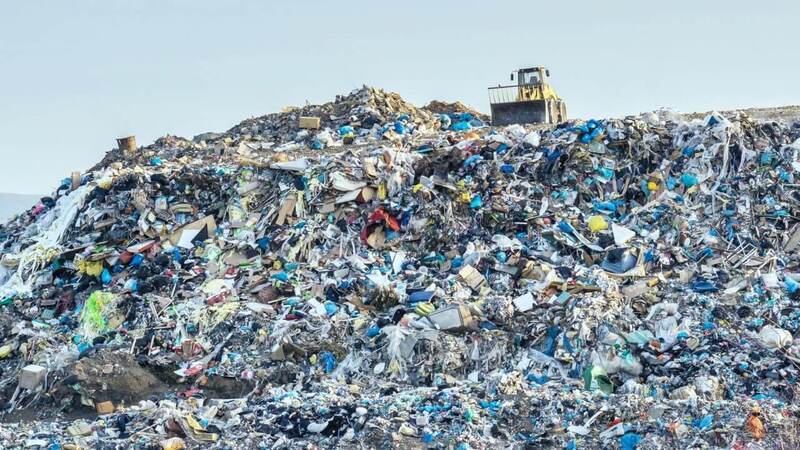
5 Steps to Build an Effective CSR Strategy
In today’s business landscape, Corporate Social Responsibility (CSR) has evolved from being a “nice-to-have” to ...

A new £3.85 million study – led by the University of Stirling – is aiming to understand the public health risks and environmental impact of plastic pollution in developing countries.
The research will focus on waste management practices in Tanzania and Malawi – two of the world’s poorest countries, and with differing legislation towards plastics – to explore the sources and economic and behavioral drivers of pollution.
The work will seek to identify the best interventions, policies and regulations to best mitigate human health risks posed by plastic pollution in developing countries.
Professor Richard Quilliam, of the University’s Faculty of Natural Sciences, is Principal Investigator on the new project, Sustainable Plastic Attitudes to Benefit Communities and Their Environments (SPACES).
It is funded through UK Research and Innovation’s (UKRI) Global Challenges Research Fund and brings together the University of Dar es Salaam (Tanzania); University of Malawi, The Polytechnic; Liverpool School of Tropical Medicine; Malawi-Liverpool Wellcome Trust Clinical Research Program (Malawi); University of Strathclyde; Durham University; and Heriot-Watt University.
Professor Quilliam said “In most sub-Saharan African countries, municipal solid waste is collected in a mixed state and is either burned or dumped in areas near human settlements – including along roads, at bus stations, and in storm water channels or rivers.”
“Discarded plastic waste in urban or peri-urban environments poses serious health and environmental challenges. Plastic bags in particular can block drainage systems and lead to localized flooding, which can increase the risk of human exposure to raw sewage and the spread of waterborne pathogens, such as cholera and typhoid, in highly-populated areas.”
“Plastics in the environment can also act as a receptacle for rainwater and create a larval habitat for medically-important mosquito species in urban environments and potentially increase the incidence of vector-borne diseases such as malaria, Zika and dengue. There is also the threat of microplastics entering the food chain through the consumption of vegetables grown in polluted environments.”
“Our research will provide a critical understanding of how plastic waste affects human health and the environment in low- and middle-income countries and, by identifying the key structural barriers that are needed to shift the policy landscape and trigger behavioral change, the SPACES project aims to provide tangible solutions.”
The project will focus on three themes. The first theme is the sources and economic and behavioral drivers of plastic pollution in Tanzania and Malawi.
The second theme is the impacts of plastic pollution on human health in terms of blocked drainage, increased flooding and the subsequent spread of pathogens – such as cholera; provision of transient receptacles for breeding mosquitoes; reduced air quality from burning plastics; and contamination of food growing in urban and peri-urban areas.
The third theme is the development of novel strategies for intervention, mitigation and sustainable adaptation by local communities.
The team – comprising natural and social scientists, engineers and economists – will use both quantitative and qualitative methods to understand the socioeconomic and political obstacles in incentivizing governments to remove plastic waste and increase sustainable waste disposal. They will also explore the mental health and wellbeing of those living in areas heavily impacted by plastic pollution.
While the work will focus on Tanzania and Malawi, the findings will be relevant to many other countries, including those in sub-Saharan Africa. This is significant as it has been estimated that between 400,000 and one million people die each year in low- and middle-income countries (LMICs) due to mismanaged waste. Despite this, waste management in LMICs remains a low priority funding area, with fragmented responsibility between departments and a lack of time or technical expertise to negotiate suitable strategies.
Professor Quilliam said: “Typically, governments, communities and individuals in sub-Saharan countries prioritize healthcare and food and water security, followed by employment, education and housing. Plastic pollution rarely registers as something important enough to redirect valuable resources away from these more pressing challenges.”
“However, we argue that waste management is inextricably linked to health and should not be treated as a separate issue. By characterizing how people interact with plastics on a day-to-day basis, the SPACES project will provide the framework required to build circular economies with improved, more sustainable development pathways and new economic opportunities. This will have far-reaching implications for human health and wellbeing, ecosystem services and economic stability in sub-Saharan Africa and beyond.”
Professor Sir Duncan Wingham, Executive Director of the Natural Environment Research Council, said: “Pollution caused by plastic waste is one of the world’s biggest environmental challenges, and UKRI is at the forefront of funding research to find solutions. These awards totaling £20 million are a vital step in helping world-leading researchers develop realistic and feasible solutions to reduce plastic pollution while enabling equitable, sustainable growth.”
“Our investment in international development research aims to positively impact the lives of millions of people across the world and supports global efforts to achieve the UN’s Sustainable Development Goals.”
The SPACES team will work alongside local government and council leaders, recycling associations and entrepreneurs to provide both the evidence and incentives that will allow individuals, communities, business leaders and national decision-makers to foster a sustained change in attitudes for tackling the challenges of plastic waste in the environment.
اترك تعليقا